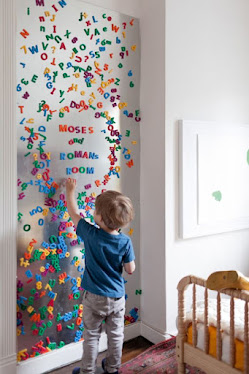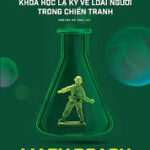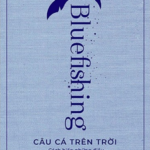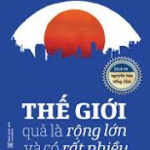Cao Lãnh – hạt mái tóc đất đỏ của thời gian, nơi đã trải qua hàng năm phù sa bồi đấp, đất lũ cần lao và để lại dấu ấn đặc biệt trên bề mặt địa danh. Như một câu chuyện lớn, nơi này viết nên câu chuyện riêng của mình trong tương lai. Với vẻ đẹp nguyên sơ, những cánh đồng sen thơm nồng và những cánh lúa chín mềm, nơi đây gửi gắm hương thơm của một ngày bình dị, như hương vị của sữa mẹ đầu đời.
Mọi thứ hiện hữu, nhất là khi mùa hè về, trở thành một tượng trưng cho sự tự do. Trong không gian rộng lớn, đám trẻ được phép tung hoành, như những cơn gió vô hình đang thổi qua tâm hồn mình.
Nơi đây, ông già với bàn tay già trầm lặng dắt thằng nhóc đi dạo vào buổi sáng, thức dậy sớm để hòa mình vào hương thơm của đồng quê trong một ngày mới. Hương sương tan biến, nắng ló dạng như mở ra hương vị của một ngày mới, đầy sức sống quê hương.
Đứa nhỏ, bước chân vào tuổi thơ, bắt đầu đặt ra hàng loạt câu hỏi, như một cách để tìm hiểu và khám phá. Merci, đứa nhỏ đầu của ông già ấy, vui mừng tựa vào lưng ông già để chung sức tạo ra những bữa sáng tươi ngon, từ dĩa cơm tấm đến tô cháo lòng ấm áp.
Khi ánh nắng buổi sáng len lỏi qua hàng cây, chợt lặng lẽ đốt lên khung trời, nơi góc cafe đặt bàn, ông già và thằng nhóc Merci ngồi, cùng chia sẻ những câu chuyện vui buồn. Thoáng ở một tầm xa, con sông đang lững lờ trôi, theo thời gian đất nhuộm một màu đất.
Hôm nay, câu chuyện xoay quanh về sự sống và cái chết. Chuyện là vì chiếc xe Honda Dream gọi là “tem lửa” một thời, hết chở ông già đi qua thời trung học, giờ đèo thêm thằng con của ông già đi qua thời tiểu học, vừa lướt ngang một đám tang.
Thế là chủ đề sống chết được mang ra chuyện trò. Ngịch tuổi.

Thằng nhóc lại lúng túng trước đề tài này, không muốn nghe về cái chết vì nó quá buồn. Trong thế giới nhỏ bé của thằng nhóc, cái chết là một điều xa xăm, không muốn mất đi những cảnh vật và người thân mình ở hiện tại. Cảnh vật, con người quen thuộc đó, thực rằng có phải hiện hữu không? hay bất kỳ lúc nào đều có thể biến mất, để lại mình trong cuộc chiến với hiện thực.
Ông già vẫn ngồi đó, cười nhẹ, tay khuấy đều để cafe hòa cùng sữa với làn nước nóng bao bọc lấy thân ly, nước óng ánh khi phản xạ ánh sáng, kể về sự sống và cái chết, như một tấm gương sáng rực.
Ai mà không chết, con trai!? Ông già nói, theo triết lý của nhà Phật, tất cả đều vô cùng tự nhiên. Ngồi đó, giữa hương vị ngào ngạt của cốc cafe ấm áp đang được đổ vào trong ly nước đầy đá, tan chảy theo từng đợt cafe sữa đổ vào.
Thằng nhóc bắt đầu thở ra một hơi dài, chụp lấy quyển sách của riêng mình, để lại một lời hẹn cuối của câu chuyện cần kết thúc nhanh. Thằng nhóc muốn ông già giữ một hẹn…chết.
Ông già bật cười to hơn, tiếp tục câu chuyện, hứa hẹn rằng ông sẽ sống, sống đến khi đám nhóc của ông già có những đứa con. Đám trẻ đó sẽ chạy quanh quẫn một chiếc bàn lớn,chờ đồ ăn sáng, gọi ông già là ông nội, ông ngoại.
Thấp thoáng trong ánh bình minh rực rỡ, ông già ôm trọn những tình thương mới, sống chậm rãi trong những thương yêu đó. Như một nhạc điệu du dương, ông già cảm nhận mạnh mẽ rằng cuộc sống là chuỗi kết nối, một vòng tròn không thể tránh được. Và dẫu không ai nắm giữ được, dẫu thời gian không thể nào quay ngược lại, ông già tiếp tục miệt mài suy tư, chìm đắm trong suy nghĩ về những điều vĩnh cửu trong cuộc sống.
***
Cao Lanh – the tuft of red earth, shaped by the hands of time, a land that has witnessed years of alluvial deposition, the toil of laborious cultivation, and left an indelible mark on the surface of its geographical name.
Like an epic tale, this place writes its own story into the future. With its raw beauty, fragrant lotus fields, and soft, ripe paddy fields, it carries the aroma of a simple day, akin to the taste of mother’s milk.
Everything that exists, especially as summer arrives, becomes a symbol of freedom. In the vast space, children are free to roam, like invisible winds blowing through their souls. Here, the old man’s weathered hands lead the young boy on morning strolls, rising early to immerse themselves in the scent of the countryside on a new day.
The misty fragrance dissipates, and the sun rises, unveiling the flavors of a new day, brimming with the vitality of the homeland. As the child steps into the realm of childhood, a series of questions begin, like a way of understanding and exploring.
Merci, the old man’s first grandchild, joyfully leans on his back, joining in creating fresh and delicious breakfasts – from a plate of broken rice to a bowl of warm and hearty rice porridge.
As the morning sun filters through the trees and gently paints the sky, in the corner where a coffee table is set, the old man and young Merci sit, sharing tales of joy and sorrow. In the distance, a river flows, a silent witness to the passage of time, imbuing the land with an earthly hue.
Today’s discourse revolves around life and death. The story takes a turn because of a Honda Dream, affectionately known as the “tem lửa” of its time, having carried the old man through his high school days and now ferrying his son through primary school, while also occasionally passing by a funeral procession. And so, the theme of life and death emerges into the conversation—incongruent ages.
The young boy becomes uneasy in the face of this topic, unwilling to engage in discussions of death due to its overwhelming sadness. In the small world of the young boy, death remains distant, a concept he’d rather not confront, lest he loses the familiar scenes and loved ones of the present. The familiar scenery, the people – are they indeed present? Or can they vanish at any moment, leaving him to grapple with the harsh reality?
Yet, the old man remains seated, a gentle smile on his face, his hands slowly stirring the coffee, blending it with milk, and merging it with the warmth of the water. The mixture shimmers as it reflects the light, while the old man continues to speak of life and death, a beacon of wisdom.
“Who doesn’t die, my boy?” the old man says, according to the philosophy of the Buddha, all things are perfectly natural. Sitting there, amidst the rich aroma of the steaming coffee, he carries on, a fountain of knowledge and experiences.
The young boy exhales deeply, closing his book with a gentle thud, signaling the conclusion of the story that needs to end. The boy wants the old man to hold on to a promise… about death.
The old man bursts into laughter, a heartier sound this time, continuing the story, promising that he will live on until his grandchildren’s generation has children of their own. These young ones will run around a large table, waiting for breakfast, calling the old man “grandfather,” or “great-grandfather.”
In the soft glow of a radiant dawn, the old man embraces the new affections, living slowly within these loves. Like a melodic tune, the old man keenly senses that life is a network, an unbreakable circle. Although no one can hold onto it, although time can’t be turned back, the old man continues to ponder, immersed in thoughts of the eternal aspects of life.








